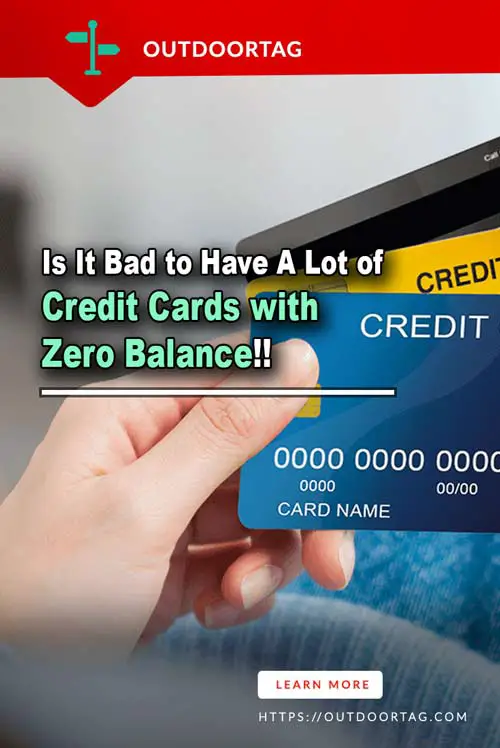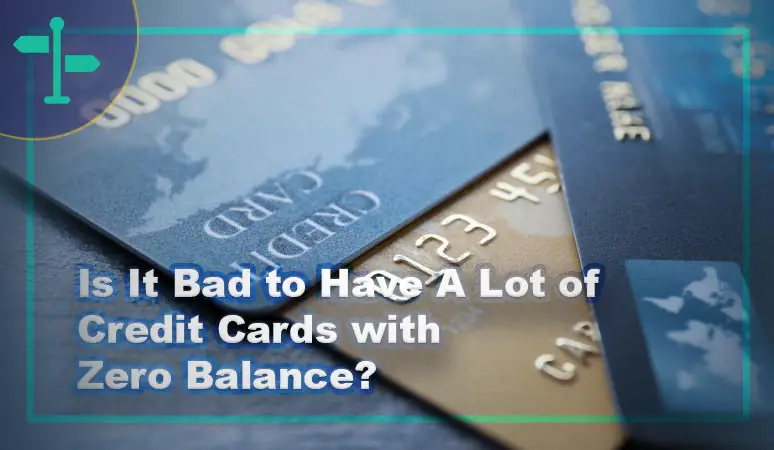Often to get some help with credit score, people still blindly follow the myth of carrying a balance in it. Paying the full balance each month is what most Americans do, more than half for your information.
Now is this method really helpful for your credit saga or does it actually hurt the whole thing? Actually, it does help. But your utilization or management of credit cards could be the reason behind affecting credit score negatively. There are habits and things you do that cause negative results.
Now one interesting question that many have in their mind, is it bad to have a lot of credit cards with zero balance? Well, there are factors you need to understand for getting the answer. Let’s find that out.
Is It Bad to Have A Lot of Credit Cards with Zero Balance – Let’s Discuss?
There are much interlinked matters to the credit card that you should be aware of. Only then you’ll understand if such a thing is good or bad. Let’s keep it wholesome and talk about those matters too.

Having Multiple Credit cards.
There are a few things you should know about having credit cards. There’s basically no right number of credit cards that one should have. On average, each UK person holds one or two credit cards.
Now having too many cards can make your credit score worse. At the same time, no credit history can do negative too. It all comes down to how able you are to meet the repayments. And also, your balance managing capabilities.
You also want to think about the services you need that are offered by different cards. Usually, you don’t need more than one card that provides the same facility. Also, for long-term use, make sure to settle with one card. Aim for improving the credit score with this long-term card.
About Balanced in Card.
There are basically two factors that directly connect with your credit score. One is the amount of due you own. And the other is how nearby you are to meet the credit limit. And based on these two criteria, your credit score will change.
So, this basically means zero balance in credit cards is definitely a great way to improve such segment of credit score. And this brings us to the point that by carrying no balance in your card, you can actually prove your repayment abilities that will automatically improve your creditworthiness.
Utilization of Your Card & Payment History Also Matters.
How much of your credit that is available is being used will also count as a measurement for debt utilization. Keeping the numbers as low as 20 percent for all the accounts usually works best generally. The zero balance will be good enough to keep scores of cards improving. And taking huge loans or balances can cause issues with lowering scores.
35% of the credit score also relates to the payment history. Missing payments and then paying down cards will not give you instant huge improvements. But with zero balance, there’s no fear of missing payments. And this will allow the credit score to improve over time.
Creditors eventually prefer credit histories that are stable and long. And that’s when having a really old card can help. But also, just having it won’t be enough. The average age of all cards you own is what actually will matter.
And this does not mean, you can never close any account to keep the credit age likable to creditors. Reasons such as poor service or high fees are valid for taking such action. In such a case, the temporary score ding should not matter. Also, you want to ask the issuer for a no-fee version rather than closing it. This way your credit utilization won’t go in vain.
However, Here’s the Glitch.
Technically, you never can guess the credit score by only depending on how many cards you own. Having several types of accounts including secured loans or mortgages may help you to increase the score. But the increase will also depend on the age of credit file. Then again, if you go for a new card application, the score decreases. Analyzing your credit history is very important to find out with what action you actually can improve the score.
Another problem that is actually a huge point to note is regarding the zero balance. Now it’s true that a net positive result will be on your side by completely paying the card balance. However, the fact that credit score also depends on financial customers’ usage can turn tables.
With a zero balance, you are getting a short-term benefit. But this also refers to an inactive account. And if your aim is for long-term credit score goals, then this can be risky. Your utilization ratio will go down with zero balance. And this can mean that the consumer is facing financial issues. This is an important factor for scores as it’s used for identifying such financially unstable people.
Those who are going to lose it all often try to bring the credit card charge to its limit. And this can potentially mean loss of stability. But then again, banks also consider inactive accounts and cause score downing measurements that eventually will be a loss in long-term usage. In some cases, the score gets really low and even account gets closed.
Conclusion
So, what do you think now, is it bad to have a lot of credit cards with zero balance? Hopefully, you can answer the question for yourself now considering your circumstances as things vary from one person to another.
In my view, it is surely a negative thing to have multiple credit cards that can quickly turn into a financial calamity. But if it’s the case of zero balances in those cards, matter is different.
Because that way, there’s less chance of credit negatively. Plus, there’s no temptation to ruin things. However, managing things responsibly is the key rule behind such strategy. Only then you can make sure that having more than one credit card account is not going to backfire on you.

